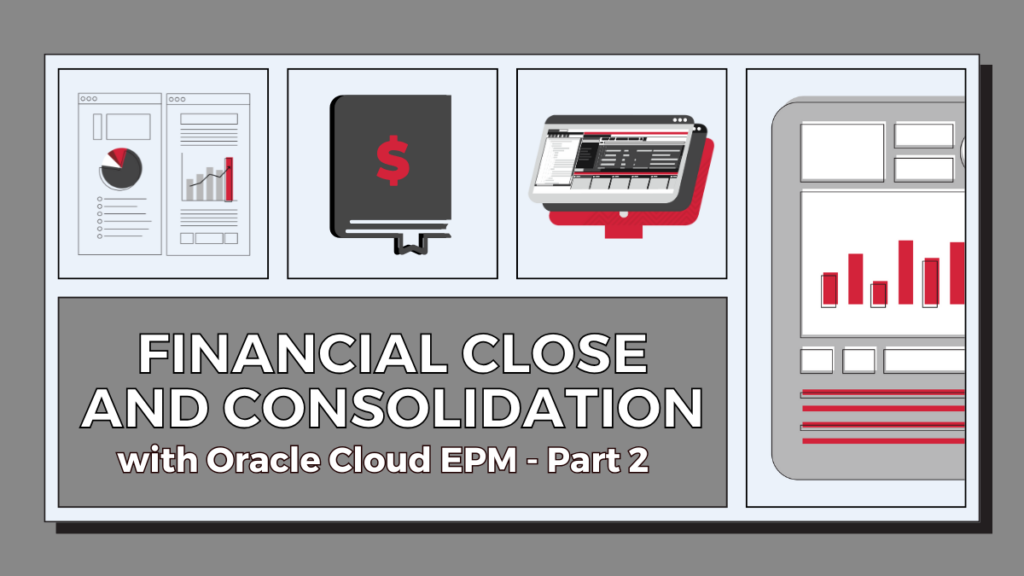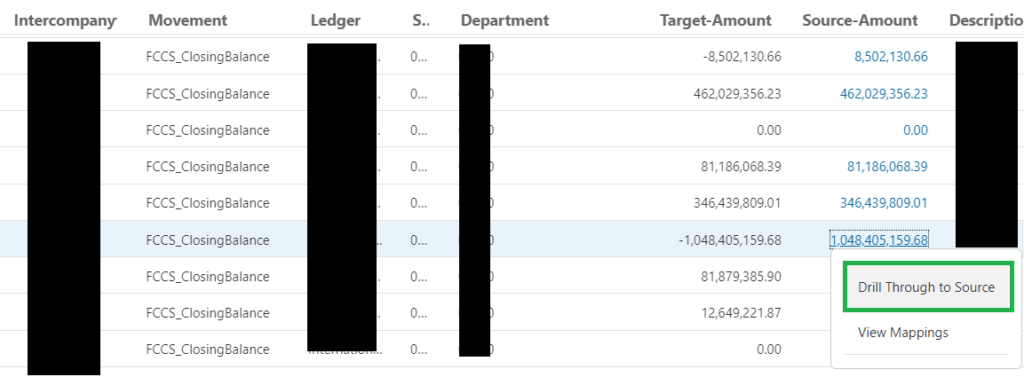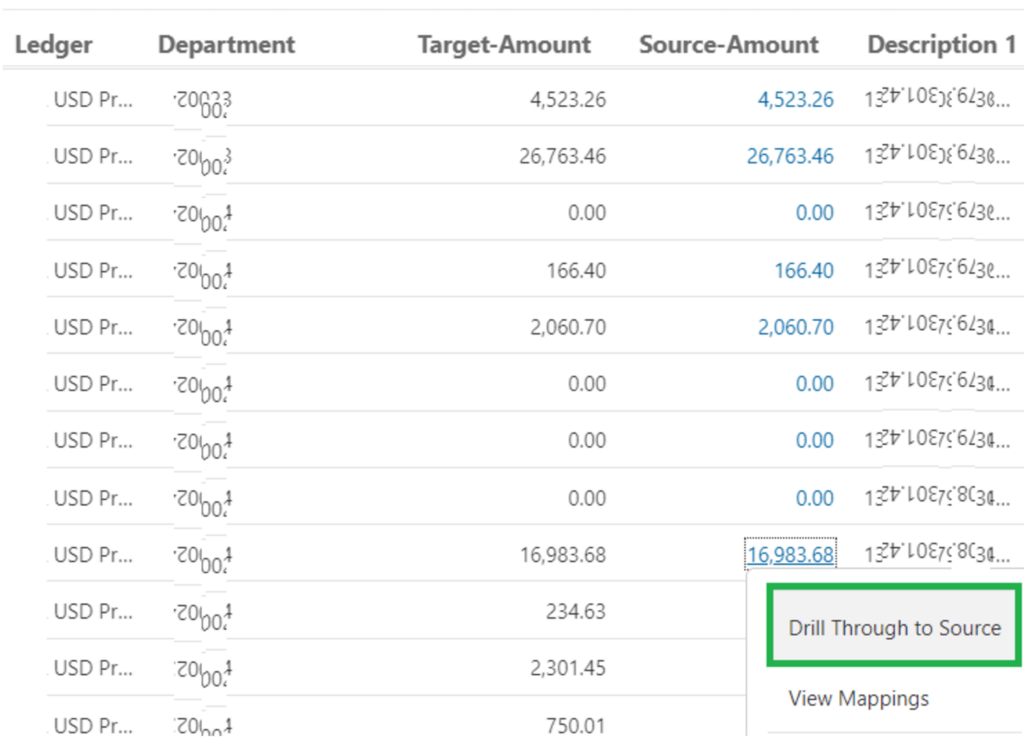
The end-to-end functionality of Oracle Cloud EPM Financial Consolidation and Close (FCCS) doesn’t stop at consolidation; it also includes managing and monitoring the entire close process. This encompasses features such as intercompany eliminations, journal workflows, and multi-GAAP reporting, all of which can be configured for precise application to an organization’s unique structure and needs. In this blog, we’ll dive into enhanced Task Management for close processes, FCCS integration with hybrid cloud deployments, and how to ensure audit-ready reporting.
Elevate your consolidation and reporting processes today! Register for the Elire Expert “Enhancing Close and Consolidations: Features of Supplemental Data Manager in FCCS” webinar on December 12th at 2:00 PM CT – featuring Senior Consultant Steven Wang.
Enhanced Task Management for Close Processes
EPM FCCS Task Management orchestrates the close process, allowing teams to track, manage, and complete essential close activities in an organized manner. This feature provides high transparency into task progress, assignment, and completion, helping teams efficiently manage deadlines.
To further enhance its functionality, FCCS supports pre-built integrations with other oracle EPM applications. Organizations can easily set up these integrations by following a straightforward process. First, a subscription to the relevant EPM Cloud services is necessary. Once subscribed, Task Manager is automatically configured with the integrations and task types relevant to the business process, such as Financial Consolidation and Close.
Users can create connections between Task Manager and other services by navigating to the Connections tool on the Home page. This allows for a streamlined approach where tasks can incorporate integrated tasks from both Oracle and external applications. For instance, users can initiate actions within connected applications, automate processes, and monitor events across platforms – all from within the Task Manager environment. This not only simplifies operations but also ensures that teams can respond promptly to any necessary actions or changes in status, further enhancing the overall efficiency and effectiveness of the close process.
Seamless Integration and Hybrid Cloud Deployments
FCCS is designed for hybrid cloud environments, integrating seamlessly with both on-premises and cloud systems through various data management options. This flexibility supports a more connected close process across different financial and operational systems.
FCCS, as part of Oracle EPM suite, comes standard with Data Exchange capabilities, allowing for efficient import and export of data. This integration can occur with on-premises systems, cloud applications, third-party software via adapters, and any other systems by leveraging data transformation across various file formats. Skilled integration developers can even create processes that handle proprietary file formats, further enhancing flexibility.
In addition, the integration and data management tools within FCCS significantly reduce the time and errors associated with the financial close process. The framework allows users to drill through from their target applications to source applications, providing visibility into data origins. When users encounter anomalies or discrepancies in balances, they can easily click on the drill-through option for a specific balance to investigate the source of the issue.
This capability not only streamlines the auditing of financial reports but also minimizes errors that can arise from overlooked adjustments, such as journal entries. Overall, these integration features make Oracle EPM FCCS a powerful tool for enhancing the accuracy and efficiency of financial operations in hybrid cloud environments.
The following examples showcase streamlined integration between ERP, FCCS and ARCS:
Utilizing ARCS, you can Drill-Through to FCCS (the Source).

ARCS drill-through to FCCS
Utilizing FCCS, you can Drill-Through to the GL details in Fusion Cloud Financials (the Source).

FCCS Drill-Through to the GL details in Fusion Cloud Financials
Compliance and Transparency with Audit-Ready Reporting
FCCS compliance features enforce transparency and auditable processes with tools for detailed tracking of journals, changes, and task management. The system is designed to maintain segregation of duties and document changes, which is vital for audit readiness and financial integrity.
To ensure compliance with audit requirements, FCCS includes a comprehensive Audit feature that allows organizations to view tasks performed by users. This functionality enables filtering of audited tasks by type, date range, and username, providing a clear overview of activities.
The types of tasks that can be audited include security and access permissions, journal actions, and open and close period tasks. Additionally, any user changes related to enabling or disabling audit options, as well as updates to calculation scripts and business rules, are tracked.
This thorough documentation of user activity enhances accountability and aids in the preparation of audit reports, making it easier for organizations to maintain compliance and ensure financial integrity. Overall, FCCS’s robust compliance framework supports organizations in achieving transparency and readiness for audits while safeguarding their financial data.
Tasks That Can be Audited include:
- Security/Access Permissions
- Journal actions and open and close period tasks
- Any user changes to enabling or disabling audit options (User added, modified or deleted)
- Updates to calculation scripts and business rules
- Journal actions and other useful information for audit reports
FCCS Audit Card

In the Audit Card of the FCCS Application, you find the following tabs and their distinct capabilities:
- The Task Manager Audit page displays history records for Task Manager related objects
- The Supplemental Data Audit page displays history records for Supplemental Data related objects
- The Enterprise Journal Audit page displays history records for Enterprise Journal related objects. Users can access the audit history of Enterprise Journals, which shows details like the name of the user who created the entry, date and time of changes, and any modifications made to the journal. This is vital, as auditors will typically analyze the journal entries for reasonableness, comparing them to supporting documentation and relevant accounting policies
Audit preparations may begin with identifying potential issues in the system. This search involves examining the list of tabs for areas of concern, such as unusually large entries, entries with vague descriptions, or entries made by unauthorized users.
Additional Audit Options
Additional Audit options can be added to the scheduled automation process to export and archive these two resources. Audit options include:
- Job Console Records: Exports the job console records to a CSV file and creates an export ZIP file. Includes details of Jobs from the Process details consoles and can be filtered to only show jobs resulting in errors/failures
- Application Audit Record: Exports data audit records into a ZIP file, which you can download and archive on a local computer. Audit information for up to 365 days is available in the environment. You can generate this report for a number of days or a date range. Records include Timestamps, usernames, activity by type, parameter/values used, and the details of the changes made by a user with both the initial state and the state after the change took effect
What’s Next
Oracle Finanancial Close and Consolidation software provides a fully configurable, scalable, and secure framework that meets the diverse needs of finance teams around the globe. With robust automation, transparency, and integration capabilities, FCCS supports a smoother, faster, and more accurate close process, empowering finance teams to focus on analysis and strategy rather than on managing manual close tasks.
As organizations consider transitioning from traditional consolidation processes to a modern, cloud-based solution like EPM FCCS, it’s crucial to understand the architecture of every system and application where financial data resides. The data consumed by the FCCS component is sourced from external systems, such as ERP systems and reports in various file formats. Once FCCS completes the periodic close processes, the resulting data can be leveraged for other external applications and processes, including account reconciliation.
To successfully navigate this transition, organizations must ensure they have a comprehensive understanding of their data sources and how FCCS integrates with them. This foundation will not only facilitate a smoother implementation but also enhance the overall effectiveness of financial operations in the cloud.
In case you missed it! Elire has more expert FCCS insights for you in our Financial Close & Consolidation with Oracle Cloud EPM – Part 1. Contact [email protected] to discover Elire’s variety of tailored Cloud EPM solutions designed to meet your organization’s specific needs.
Learn more about implementing Oracle Cloud EPM on Elire’s EPM & Analytics Services Page. Stay informed about the latest Oracle Cloud advancements by subscribing to Elire’s Monthly Cloud Newsletter. For instant updates, connect with Elire on LinkedIn and Twitter.
Authors
-

Mr. Casarrubias is an Elire Consultant, specializing in Oracle Cloud Enterprise Performance Management. Ivan is passionate about Business Intelligence and EPM technology. Partnering with clients to help achieve their EPM goals, Ivan assists in streamlining organization's financial business processes.
View all posts -

Mrs. Selness serves as Elire’s Marketing Specialist, working to develop and optimize marketing brand assets. Jordan collaborates with the Elire Team to produce blog and social media content, strategize for social media expansion, and maintain Elire’s internal and external branding.
View all posts
